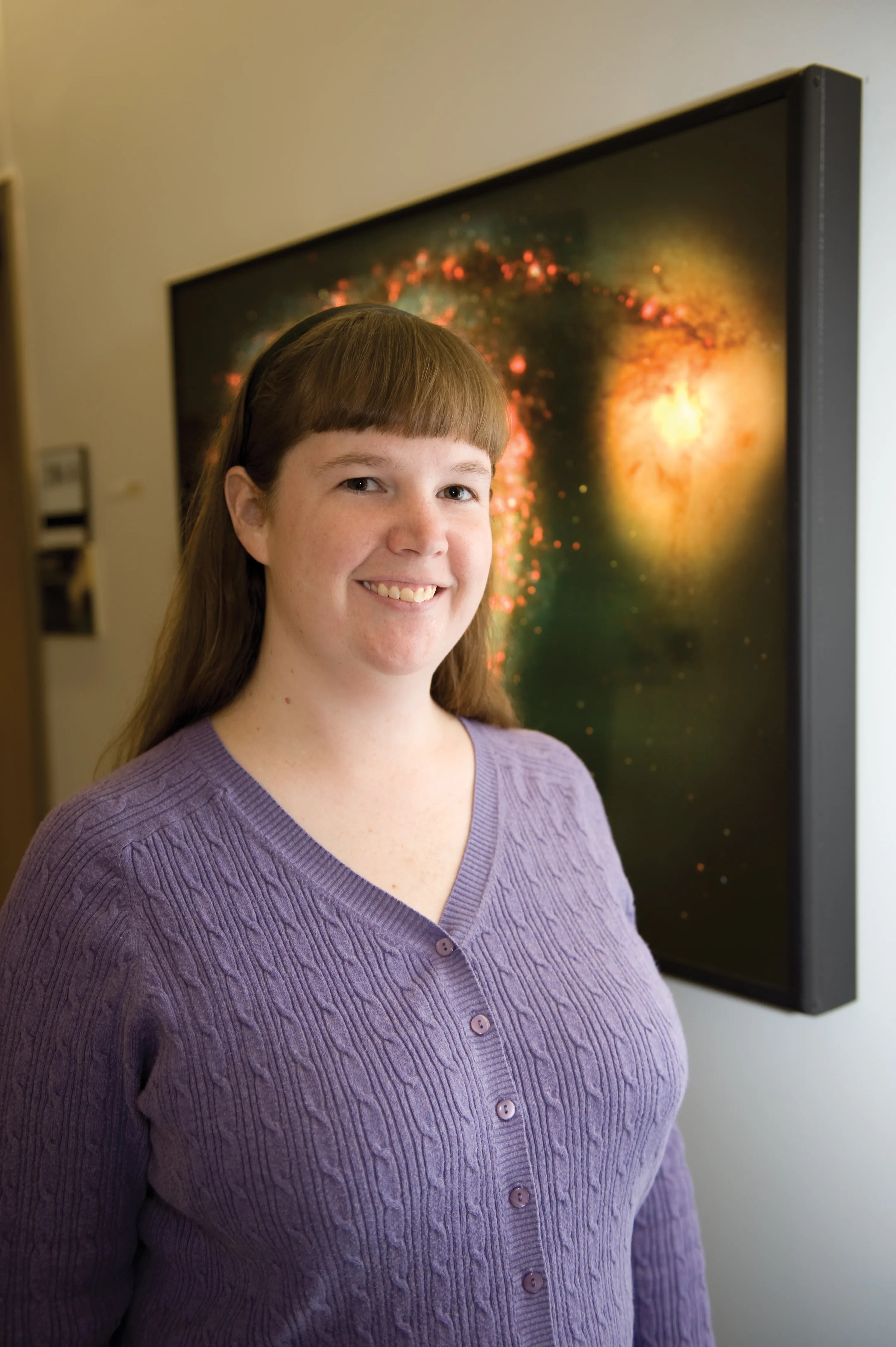
Vanessa Thomas
Lead Science Writer
Vanessa Thomas has been writing for as long as she can remember. “As early as second grade, I remember writing my own stories. When I was in late elementary school and early middle school, I thought I’d be a children’s book author. As early as that, I wanted to write for a living.”
Growing up in Lansing, Michigan, Vanessa also found herself fascinated with the night sky. “I had an uncle who gave me the H. A. Rey book “The Stars” when I was a child. I remember taking that book out at night and trying to find the constellations and match them up with what was in the book.” But Vanessa mainly credits her father with her interest in astronomy. “We’d go camping and sit around the campfire at night, talking and looking up at the stars. My dad and I would often look for satellites and meteors and see what constellations we could identify.”
Vanessa first thought about combining these two passions when she was in junior high. “I was in something called Science Olympiad, and there was a coach who told me, ‘Science needs writers.’ That was when I started thinking, ‘I could do both. I could have them intersect.’”
Vanessa revisited that thought while studying astronomy at the Massachusetts Institute of Technology (MIT). “I found out about this joint program where you could study a science and a humanities subject, and they offered a science journalism course. And that’s when it clicked for me, ‘Oh, I could combine them professionally.’” She went on to graduate with a joint bachelor’s degree in planetary science and science writing.
Upon graduation, Vanessa worked as editorial assistant for a series of career-themed magazines geared toward college students while doing a part-time teaching assistant job at the Boston Museum of Science. “I learned a lot about how you present science to kids and how to make it fun and interesting,” she recalled. The experience helped cement a love for working directly with the public sparked while volunteering at a local science museum in high school. “I never imagined myself as a teacher, but I enjoyed the informal aspect of sharing science knowledge with the public, so it’s something I’ve done ever since.”
Vanessa was hired in 2000 by Astronomy magazine to work on its website, where she wrote daily news articles in addition to short occasional pieces for the print magazine. “I learned a lot about astronomy that way just by covering astronomy research. I felt I learned even more about astronomy writing about it than I did in school.”
After about three years, she moved to the University of Chicago Press to become a manuscript editor, editing research papers for the Astrophysical Journal and Astronomical Journal. While she enjoyed getting a sneak preview of the world’s upcoming astronomy news, the desire for a more creative position sent her to Chrysalis Publishing in Massachusetts, where she wrote and edited lessons and chapters for science textbooks.
“That appealed to me because it was more creative, but I really yearned to get back into astronomy,” she said.
In 2006, Vanessa joined the Hubble Space Telescope team as a science writer in the Office of Public Outreach at the Space Telescope Science Institute, Baltimore, Maryland, where she wrote stories for the multimedia museum exhibit ViewSpace and for the HubbleSite website. In 2016, she transitioned to the Hubble outreach team at Goddard Space Flight Center in Maryland. She writes for NASA’s Hubble website, works with others to plan and create outreach materials that share Hubble’s story with the public, helps craft social media posts, writes Hubble science books, participates in outreach events, and conducts tours. An active astronomy club member, she frequently volunteers at events, helping people find cosmic objects through her personal telescope.
Looking through a personal telescope is a different experience than looking at a Hubble image — a kind of treasure hunt through the sky, she said. She enjoys the experience of having her telescope happen upon a star cluster or galaxy while skygazing, or the thrill when a fuzzy object resolves itself into something recognizable. “Everybody’s seen a picture of Saturn, but when they look through a telescope and see Saturn with their own eyes, they’ll gasp or say, ‘Oh my gosh, it’s real.’ I love that and it kind of describes how I feel when I’m looking at it with my own eyes.”
Vanessa loves to travel and is a bit of an eclipse-chaser. She’s ventured to Aruba, Egypt, and the East China Sea to witness total solar eclipses. She was excited to experience her first American total solar eclipse in 2017 just north of Nashville, Tennessee.
She’s also a roller coaster enthusiast who travels the globe in search of coasters she hasn’t yet ridden, and passengers seated next to her during nighttime coaster rides are likely to get an impromptu astronomy lesson. “For some people, lift hills on roller coasters are the scariest thing ever, but to me it’s relaxing,” she said. “So I’ll lean back and look at the sky to see if it’s clear, and if it is, I spend that time climbing the lift hill looking for constellations and planets. And whoever’s sitting next to me gets to find out, ‘Oh, that’s Jupiter, and that’s Venus’ before we plunge down that first drop.”
